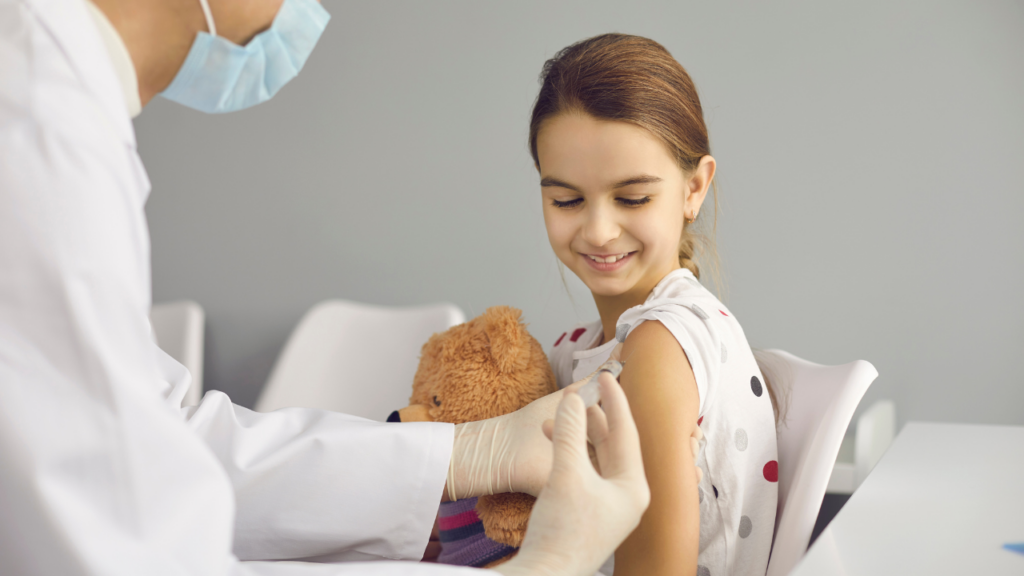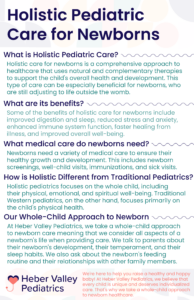
As a parent, ensuring your child’s health and well-being is a top priority. One critical aspect of this is protecting them from preventable diseases through vaccination. One such vaccine that has gained attention and importance in recent years is the Human Papillomavirus (HPV) vaccine, that you can get when you receive pediatric care in Heber Valley. Despite its proven benefits, there are still many misconceptions surrounding it. This blog by Heber Valley Pediatrics will delve into why the HPV vaccine is essential for kids, how it works, and debunk common myths to provide you with a clear understanding of its importance.
Understanding HPV and Its Risks
Human Papillomavirus (HPV) is a group of more than 200 related viruses, some of which are transmitted through sexual contact. HPV is very common, and nearly all sexually active individuals will contract at least one type of HPV at some point in their lives. While most HPV infections go away on their own without causing any problems, some types can lead to serious health issues, including:
1. Cervical Cancer:
– HPV is the primary cause of cervical cancer in women. Persistent infection with high-risk HPV types can lead to abnormal changes in the cervix, which, if left untreated, can develop into cancer.
2. Other Cancers:
– HPV can also cause other types of cancers, including cancers of the vulva, vagina, penis, anus, and oropharynx (the back of the throat, including the base of the tongue and tonsils).
3. Genital Warts:
– Certain types of HPV cause genital warts, which are non-cancerous but can be uncomfortable and distressing.
The HPV Vaccine: A Preventative Measure
The HPV vaccine is a powerful tool in preventing HPV-related diseases. Here’s why it’s crucial:
1. Protection Against Cancer:
– The HPV vaccine protects against the high-risk HPV types that cause the majority of cervical cancers and other HPV-related cancers, which our female pediatrician can give. By vaccinating children before they are exposed to the virus, we can significantly reduce their risk of developing these cancers in the future.
2. Prevention of Genital Warts:
– The vaccine also protects against the HPV types that cause genital warts, providing an additional layer of protection for your child’s health and well-being.
3. Herd Immunity:
– Widespread vaccination can help reduce the overall prevalence of HPV in the population, contributing to herd immunity and protecting those who are not vaccinated or are at higher risk of infection.
When to Get the HPV Vaccine
The HPV vaccine is most effective when given at a younger age, before any exposure to HPV. The recommended age for receiving the first dose of the HPV vaccine is between 9 and 11 years old. Here’s a breakdown of the dosing schedule:
1. Ages 9 to 11:
– If the vaccine is administered between the ages of 9 and 11, only two doses are required. The second dose is given 6-12 months after the first dose.
2. Older Adolescents and Adults:
– If the vaccination is started at age 15 or older, three doses are needed. The second dose is given 1-2 months after the first dose, and the third dose is given 6 months after the first dose.
Starting the vaccination series at the recommended age not only ensures better immune response but also simplifies the dosing schedule, making it easier to complete the series.
Debunking Common Myths About the HPV Vaccine
Despite the clear benefits, there are still many misconceptions about the HPV vaccine. Let’s address and debunk some of the most common myths:
1. Myth: The HPV Vaccine is Only for Girls
– Fact: The HPV vaccine is recommended for both boys and girls. HPV can affect anyone, and when you get pediatric care in Heber Valley, vaccinating boys helps prevent the spread of the virus and protects them from HPV-related cancers and genital warts. Boys can contract HPV from future partners and are at risk for cancers such as penile, anal, and oropharyngeal cancers.
2. Myth: The HPV Vaccine is Only Necessary for Those Who Are Sexually Active
– Fact: The vaccine is most effective when given before any exposure to HPV, which is why it’s recommended for preteens who are not yet sexually active. However, individuals can contract HPV through various means, not just sexual activity. It’s crucial to vaccinate children early to provide protection before any potential exposure.
3. Myth: The HPV Vaccine is Unsafe
– Fact: The HPV vaccine has been extensively studied and is proven to be safe. Like any vaccine, it can cause mild side effects, such as pain at the injection site, fever, dizziness, or nausea. Serious side effects are extremely rare. Our female pediatrician knows that the benefits of preventing HPV-related cancers and diseases far outweigh the minimal risks associated with the vaccine.
4. Myth: The HPV Vaccine Encourages Promiscuity
– Fact: There is no evidence to support the claim that receiving the HPV vaccine leads to increased sexual activity or promiscuity. The vaccine is a preventive measure aimed at protecting health, much like other vaccines. Educating children about safe practices and providing vaccines are both crucial aspects of their overall health and well-being.
5. Myth: The HPV Vaccine is Not Effective
– Fact: Studies have shown that the HPV vaccine is highly effective in preventing infections with the HPV types it covers. The vaccine has led to significant reductions in HPV infections, genital warts, and cervical pre-cancers in vaccinated populations.
The Role of Parents and Healthcare Providers
As a parent, it’s natural to have questions and concerns about new vaccines. Here are some steps you can take to make an informed decision about the HPV vaccine for your child:
1. Educate Yourself:
– Gather information from reliable sources, such as the Centers for Disease Control and Prevention (CDC), World Health Organization (WHO), and pediatric care in Heber Valley. Understanding the science and benefits behind the HPV vaccine can help you make an informed decision.
2. Consult with Healthcare Providers:
– Discuss any concerns or questions with your child’s healthcare provider. They can provide personalized information and address any specific worries you may have.
3. Encourage Open Communication:
– Talk to your child about the importance of vaccinations and how they help protect against serious diseases. Encourage them to ask questions and express any concerns they may have.
4. Schedule the Vaccination:
– Ensure your child receives the HPV vaccine at the recommended age. Follow the dosing schedule and complete the series to ensure full protection.
The Long-Term Impact of the HPV Vaccine
The benefits of the HPV vaccine extend far beyond individual protection. By vaccinating our children, we contribute to the broader goal of reducing HPV-related diseases and cancers across the population. Here are some long-term impacts of widespread HPV vaccination:
1. Reduction in HPV-Related Cancers:
– As more individuals are vaccinated, the incidence of HPV-related cancers is expected to decline significantly. This includes cervical cancer, which remains a leading cause of cancer-related deaths in women worldwide.
2. Decreased Healthcare Costs:
– Preventing HPV infections and related diseases can lead to substantial savings in healthcare costs. Our female pediatrician knows that early prevention reduces the need for expensive treatments and interventions for cancer and other HPV-related conditions.
3. Improved Public Health:
– Widespread vaccination contributes to overall public health by reducing the prevalence of HPV in the population. This not only protects vaccinated individuals but also helps protect those who are not vaccinated or are more vulnerable to infection.
4. Increased Awareness and Education:
– The push for HPV vaccination has increased awareness about the importance of preventative healthcare and vaccinations in general. This has the potential to improve public health outcomes and encourage proactive health measures.
Overcoming Barriers to HPV Vaccination
Despite the proven benefits, barriers to HPV vaccination still exist. Here are some common challenges and ways to overcome them:
1. Lack of Awareness:
– Many parents and individuals are still unaware of the importance of the HPV vaccine. Public health campaigns and education initiatives can help raise awareness and provide accurate information about the vaccine.
2. Misinformation and Myths:
– Misinformation about the HPV vaccine can deter parents from vaccinating their children. Healthcare providers play a crucial role in debunking myths and providing factual information to counteract false claims.
3. Accessibility and Cost:
– While the HPV vaccine is covered by most insurance plans, access to healthcare can still be a barrier for some families. Community health programs, pediatric care in Heber Valley, and initiatives can help provide vaccines to underserved populations.
4. Cultural and Religious Beliefs:
– Some cultural and religious beliefs may influence decisions about vaccination. Respectful and informed discussions with community leaders and members can help address concerns and promote understanding of the vaccine’s benefits.
Conclusion
The HPV vaccine is a critical tool in the fight against HPV-related cancers and diseases. By vaccinating our children at the recommended age, we can provide them with lifelong protection against these serious health issues. At Heber Valley Pediatrics, we are committed to ensuring the health and well-being of your child through comprehensive and preventative care. We encourage you to discuss the HPV vaccine with your child’s healthcare provider and make an informed decision to protect their future.
Remember, the HPV vaccine is not just about preventing an infection; it’s about safeguarding your child’s health and reducing the risk of cancer and other HPV-related diseases. Let’s work together to debunk myths, raise awareness, and ensure that our children receive the protection they deserve. Schedule your child’s HPV vaccination today and take a proactive step towards a healthier future for them and our community.





